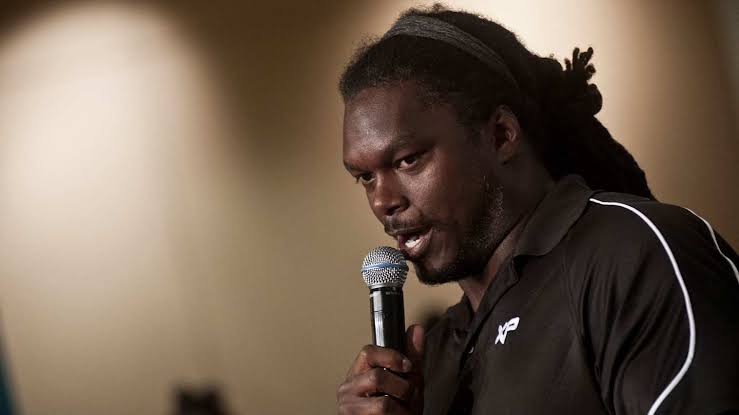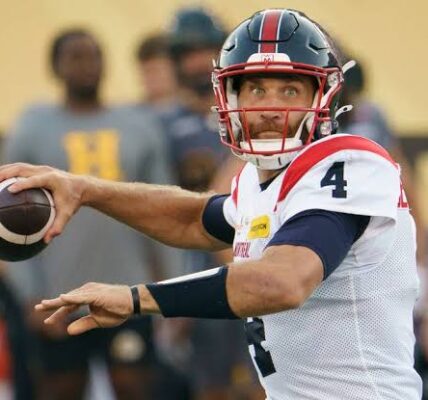The Los Angeles Rams went through a dramatic transformation under head coach Sean McVay in 2017. With a few adjustments and minor roster moves, the Rams surged from a 4-12 team to a dominant 11-5 squad. That year, QB Jared Goff evolved from a winless rookie (0-7) to the offensive leader of a playoff-bound team. He played five years in L.A. before being traded to the Detroit Lions.
Goff, the Rams’ rookie in 2016, made nearly $81 million during his five-year stint. Before being shipped out, he led the team to a 42-27 mark, with a 63.4% completion rate, 18,171 yards, 107 TDs, and 55 INTs. But his playoff resume was less impressive: just a 2-3 record, 57.4% completion, 1,300 yards, 4 TDs, and 2 INTs — averaging 260 yards and a 40% win rate.
When the Rams were eliminated by the Packers in the 2021 Divisional Round, things shifted. That emotional moment when All-Pro DT Aaron Donald broke down on the sideline became a turning point—any player who failed to grasp its weight was missing the bigger picture.
That raw emotion shown by Aaron Donald sparked a fire across the entire Rams organization. It wasn’t about one guy—it was about matching Donald’s intensity across the board and uniting under a sense of urgency.
At age 26, Goff seemed disconnected from that urgency felt by his team and coaches. After a rough 2019, the staff pushed him to improve in chaos. He entered 2020 confident, aiming to excel off-platform and in broken plays. Instead, he hurt his offense with 13 INTs and 7 fumbles, despite throwing 20 TDs.
That playoff defeat at Lambeau Field was the final straw. Though the Rams had backed Goff through 2020, they saw he shrank under pressure. The response? They traded Goff, a 2021 third, a 2022 first, and a 2023 first to Detroit for QB Matthew Stafford. The Rams then won Super Bowl LVI, while the Lions got a treasure trove of picks to rebuild.
That blockbuster deal benefited both sides. The Rams got a championship-ready QB; the Lions began a rebuild with a “future” option. But instead of embracing Detroit’s rise, Goff chose to air grievances about the Rams in Netflix’s “Quarterback” Season 2—playing the victim rather than the victor.
That rubbed Rams fans the wrong way. And it especially didn’t sit right with former Washington linebacker LaVar Arrington. Speaking out, Arrington dismissed Goff’s complaints as misguided drama.
NFL players face cuts, trades, and setbacks constantly. While free agents have more freedom, contracted players often don’t. Still, thousands of college athletes dream of entering that harsh NFL reality—and accept the risk that comes with it.
Goff started 69 games for the Rams and 65 for the Lions. According to Over The Cap, he’s earned more than $399 million in the NFL. So him lamenting his Rams exit doesn’t exactly reflect hardship.
Yes, Goff was traded. But Stafford was older and more proven—and it took a haul of picks just to make the swap. Stafford now boasts a 5-2 playoff record, a 68% completion rate, 2,088 yards, 15 TDs, and 3 INTs. The contrast speaks volumes.
So maybe the issue lies with Goff himself. He cashed massive checks while offering only minimal progression, never truly evolving. His Netflix narrative is more about self-pity than accountability.
Rather than dragging this story on, Goff should consider therapy if he’s still wounded by the Rams split. Dwelling publicly only weakens his image. He’s now with a rising Lions team and should celebrate that.
.Ultimately, the more fans revisit why the Rams swapped Goff for Stafford—along with three high-value picks—the more sense the trade makes.
Choosing to move forward is the smarter path. But for the sake of dramatic TV, Goff clings to the past. Despite nearly $400 million in earnings and a starting role, he comes off as petty. Don’t just take it from me—LaVar Arrington said it loud and clear.




